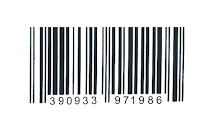The virus activates the
bodily metaphor of community and society because it maps out the vital systems
of our world with an inescapable mortal clarity. Just as I endlessly inventory my
own body for symptoms, we are all learning to extend that heightened
proprioception to the world around us. Your phone can be just as much a vector
as your own hands, and so in some sense it is practical to consider them part
of the same body. The person who delivers your takeout or your Amazon box is
meshed into a network of people and objects that we must, as a matter of
safety, assume are all connected by the invisible nervous fibers of infection.
In a crowded grocery store we can see like traces of light each touch and
transfer, stretching back into the fragility of the supply chain itself. Its
circulatory system is made of individuals like vulnerable cells, assembling on
factory floors and harvesting vegetables, driving trucks and unloading trailers
and stocking shelves.
There is a potential
for irony — or cynicism — in observing that the technological infrastructures
that have long aroused fears of isolation and alienation are now those that we
cling to in order to keep us safe and connected to each other. Where living
large parts of our lives online was so recently still being offered as the
reason for social decay, we now fold those so-called second lives into our
primary personality, and the devices through which we access them are fused to
our once-social bodies. The decay is not in changed forms of connection, but in
the callousness with which we have treated the people who make them possible.
The virus shows us how we are fused to other bodies as well. Paul [Ian Alan
Paul] writes that we must “refuse to curtail our thinking to how each of our
individual lives may be particularly impacted by the virus and to begin to
contemplate the potential we collectively share to change the course of the
pandemic as well as to shape the new society that emerges from it.”
— Connective Tissues,
Anna Reser

Nenhum comentário:
Postar um comentário